
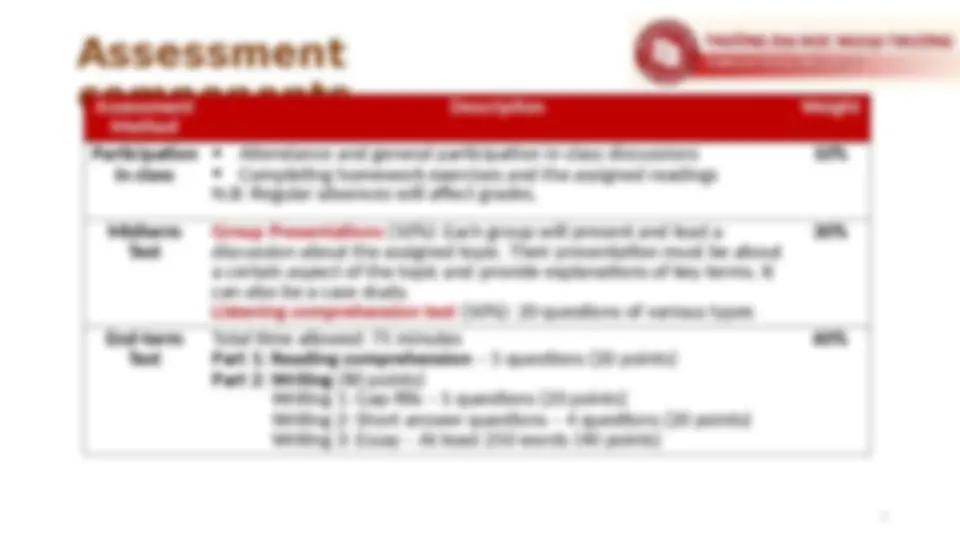



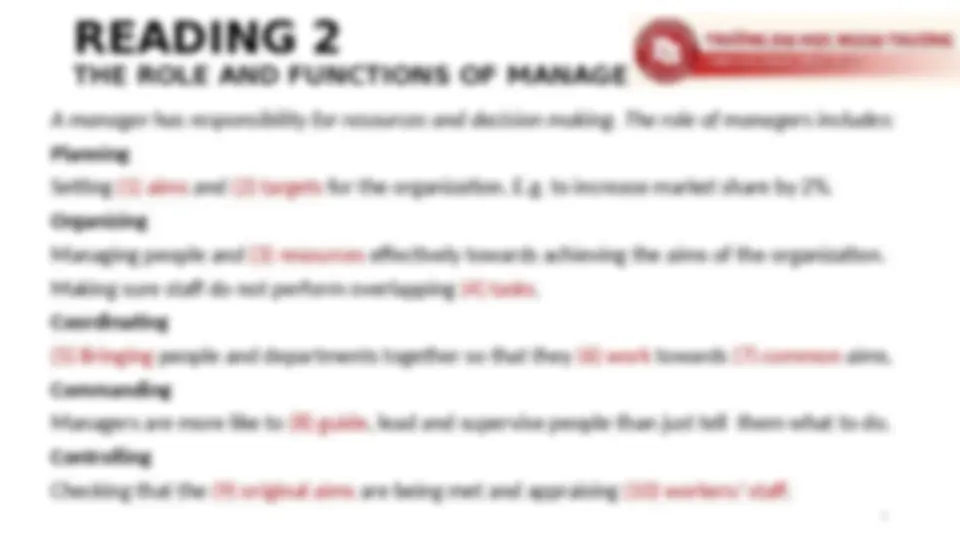
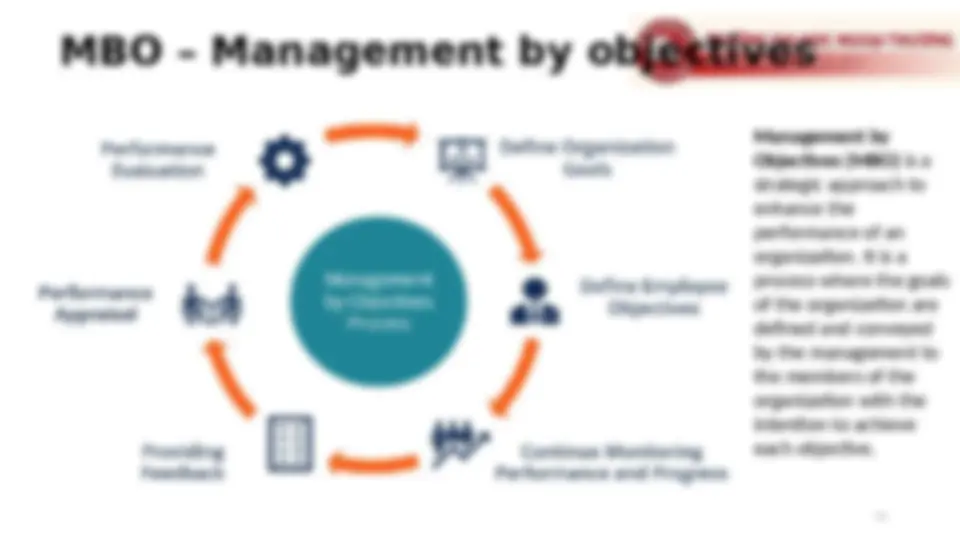

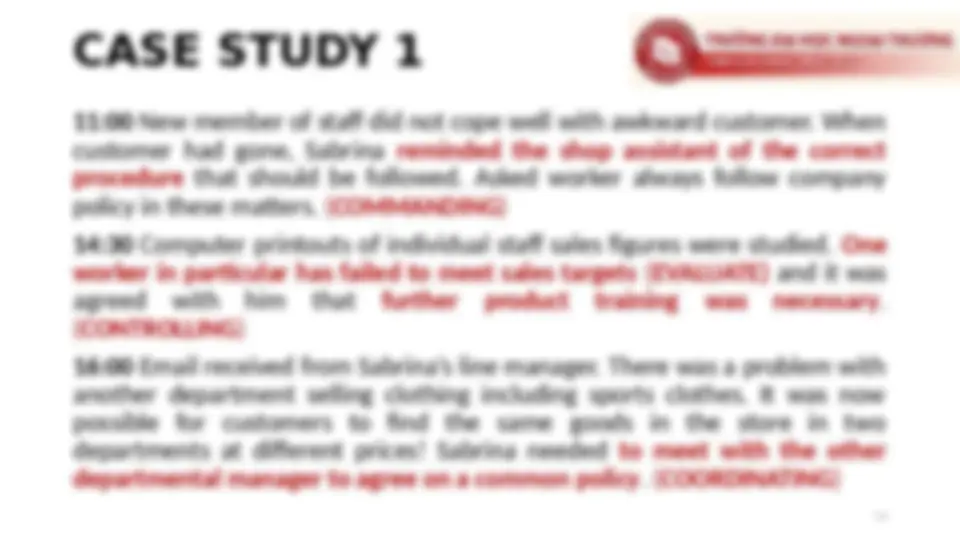












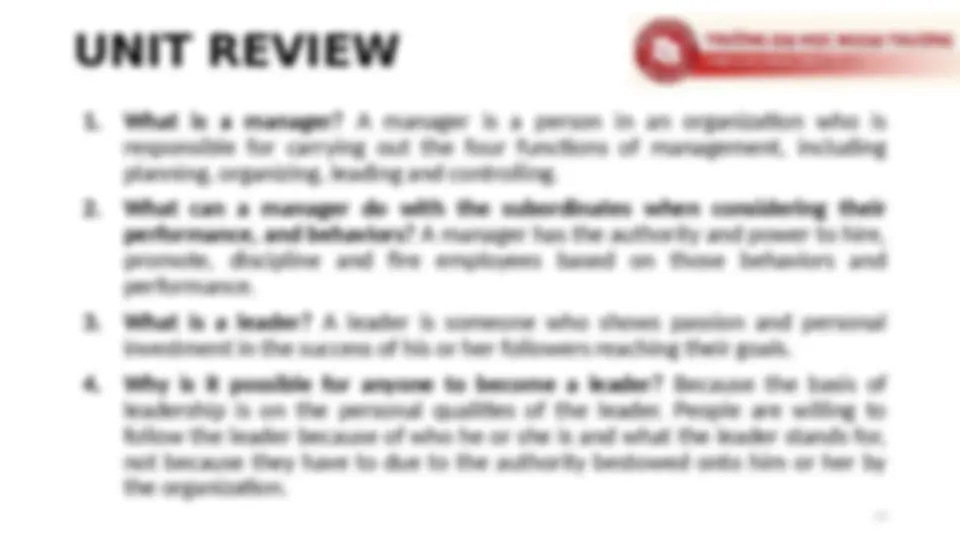



Study with the several resources on Docsity

Earn points by helping other students or get them with a premium plan


Prepare for your exams
Study with the several resources on Docsity

Earn points to download
Earn points by helping other students or get them with a premium plan
Community
Ask the community for help and clear up your study doubts
Discover the best universities in your country according to Docsity users
Free resources
Download our free guides on studying techniques, anxiety management strategies, and thesis advice from Docsity tutors
This esp course is designed for students with at least an upper-intermediate level of english (common european framework for languages level b2). It focuses on understanding and expressing key concepts of business and economics, covering management, production, marketing, finance, and macroeconomics. The course aims to present language and concepts found in books, journals, newspapers, magazines, and websites, develop comprehension, speaking skills, and provide opportunities to express business concepts in writing. Key topics include planning, organizing, leading, controlling, management by objectives (mbo), and staff performance measurement.
Typology: Lecture notes
1 / 30

This page cannot be seen from the preview
Don't miss anything!























This ESP course is for students with at least an upper-intermediate level of English (Common European Framework for Languages level B2) who need to understand and express the key concepts of business and economics. It covers the most important areas of management, production, marketing, finance and macroeconomics. This course aims to: (^) present you with the language and concepts of business and economics found in books, journals, newspapers and magazines, and on websites; (^) develop your comprehension of business and economics texts; (^) develop your speaking skills in the fields of business and economics; (^) provide you with opportunities to express business concepts both verbally and in writing, by reformulating them in your own words while summarizing, analyzing, criticizing and discussing ideas.
WEEK 1 Introduction to the course Unit 1. Management WEEK 2 Unit 2. Work and motivation Unit 3. Company structure WEEK 3 Unit 4. Managing across culture Unit 5. Recruitment WEEK 4 Unit 6. The different sectors of the economy Unit 7. Production WEEK 5 Unit 8. Logistics Unit 9. Quality WEEK 6 MID-TERM Unit 10. Marketing WEEK 7 Unit 11. Advertising Unit 12. Banking WEEK 8 Unit 13. Accounting and Financial Statements Unit 14. The Business Cycle WEEK 9 Unit 15. Corporate Social Responsibility Unit 16. Efficiency and Employment WEEK 10 Unit 17. International Trade REVIEW
Planning : A management function that includes anticipating trends and determining the best strategies and tactics to achieve organizational goals and objectives. Organizing : A management function that includes designing the structure of the organization and creating conditions and systems in which everyone and everything work together to achieve the organization’s goals and objectives. Leading : Creating a vision for the organization and guiding, training, coaching, and motivating others to work effectively to achieve the organization’s goals and objectives. Controlling : A management function that involves establishing clear standards to determine whether or not an organization is progressing toward its goals and objectives, rewarding people for doing a good job, and taking corrective action if they are not.
Management by Objectives (MBO) is a strategic approach to enhance the performance of an organization. It is a process where the goals of the organization are defined and conveyed by the management to the members of the organization with the intention to achieve each objective.
Benefits (^) Management by objectives helps employees appreciate their on-the-job roles and responsibilities. (^) The Key Result Areas (KRAs) planned are specific to each employee, depending on their interest, educational qualification, and specialization. (^) The MBO approach usually results in better teamwork and communication. (^) It provides the employees with a clear understanding of what is expected of them. The supervisors set goals for every member of the team, and every employee is provided with a list of unique tasks. (^) Every employee is assigned unique goals. Hence, each employee feels indispensable to the organization and eventually develops a sense of loyalty to the organization. (^) Managers help ensure that subordinates’ goals are related to the objectives of the organization.
1. consultant D. a person who provides expert advice to a company 2. crisis E. a situation of danger or difficulty 3. innovation B. a new idea or method 4. objective (noun) F. something you plan to do or achieve 5. promotion H. when someone is raised to a higher or more important position 6. public sector G. the section of the economy under government control 7. strategy A. a plan for achieving success 8. subordinate C. a person with a less important position in an organization
EXERCISE 3. Complete the text using these verbs. So, what’s management? Well, it’s essentially a matter of organizing people. Managers, especially senior managers, have to set objectives for their organization, and then (5) work out how to achieve them. This is true of the managers of business enterprises, government departments, educational institutions, and sports teams, although for government services, universities and so on we usually talk about administrators and administration rather than managers and management. Managers (6) analyze the activities of the organization and the relations among them. They (7) divide the work into distinct activities and then into individual jobs. They (8) select people to manage these activities and perform the jobs. And they often need to make the people responsible for performing individual jobs, (9) form effective teams.
EXERCISE 3. Complete the text using these verbs. Managers have to be good at communication and motivation. They need to (10) communicate the organization’s objectives to the people responsible for attaining them. They have to motivate their staff to work well, to be productive, and to (11) contribute something to the organization. They make decisions about pay and promotion. Managers also have to (12) measure the performance of their staff, and to ensure that the objectives and performance targets set for the whole organization and for individual employees are reached. Furthermore, they have to (13) train and develop their staff so that their performance continues to (14) improve. Some managers obviously (15) perform these tasks better than others. Most achievements and failures in business are the achievements or failures of individual managers.